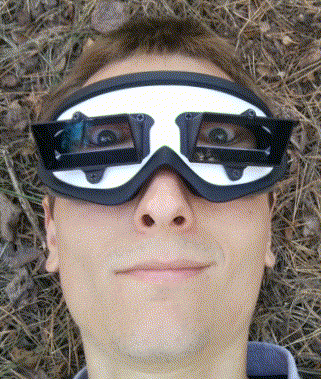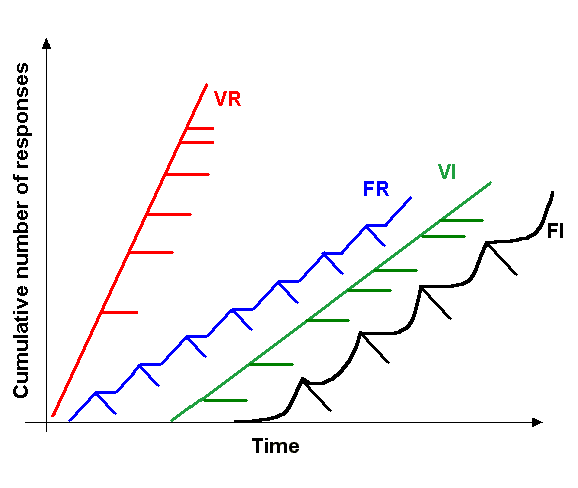|
Adaptive
Adaptation, in biology, is the process or trait by which organisms or population better match their environment Adaptation may also refer to: Arts * Adaptation (arts), a transfer of a work of art from one medium to another ** Film adaptation, a story from another work, adapted into a film ** Literary adaptation, a story from a literary source, adapted into another work ** ** Theatrical adaptation, a story from another work, adapted into a play * ''Adaptation'' (film), a 2002 film by Spike Jonze * "Adaptation" (''The Walking Dead''), a television episode *''Adaptation'', a 2012 novel by Malinda Lo Biology and medicine * Adaptation (eye), the eye's adjustment to light ** Chromatic adaptation, visual systems' adjustments to changes in illumination for preservation of colors ** Prism adaptation, sensory-motor adjustments after the visual field has been artificially shifted * Cellular adaptation, changes by cells/tissues in response to changed microenvironments * High-altitude ad ... [...More Info...] [...Related Items...] OR: [Wikipedia] [Google] [Baidu] |
Complex Adaptive System
A complex adaptive system is a system that is ''complex'' in that it is a dynamic network of interactions, but the behavior of the ensemble may not be predictable according to the behavior of the components. It is ''adaptive'' in that the individual and collective behavior mutate and self-organize corresponding to the change-initiating micro-event or collection of events. It is a "complex macroscopic collection" of relatively "similar and partially connected micro-structures" formed in order to adapt to the changing environment and increase their survivability as a macro-structure. The Complex Adaptive Systems approach builds on replicator dynamics. The study of complex adaptive systems, a subset of nonlinear dynamical systems, is an interdisciplinary matter that attempts to blend insights from the natural and social sciences to develop system-level models and insights that allow for heterogeneous agents, phase transition, and emergent behavior. Overview The term ''complex a ... [...More Info...] [...Related Items...] OR: [Wikipedia] [Google] [Baidu] |
Adaptive Behavior
Adaptive behavior is behavior that enables a person (usually used in the context of children) to cope in their environment with greatest success and least conflict with others. This is a term used in the areas of psychology and special education. Adaptive behavior relates to everyday skills or tasks that the "average" person is able to complete, similar to the term life skills. Nonconstructive or disruptive social or personal behaviors can sometimes be used to achieve a constructive outcome. For example, a constant repetitive action could be re-focused on something that creates or builds something. In other words, the behavior can be adapted to something else. In contrast, maladaptive behavior is a type of behavior that is often used to reduce one's anxiety, but the result is dysfunctional and non-productive. For example, avoiding situations because you have unrealistic fears may initially reduce your anxiety, but it is non-productive in alleviating the actual problem in the lo ... [...More Info...] [...Related Items...] OR: [Wikipedia] [Google] [Baidu] |
Climate Change Adaptation
Climate change adaptation is the process of adjusting to current or expected effects of climate change.IPCC, 2022Annex II: Glossary öller, V., R. van Diemen, J.B.R. Matthews, C. Méndez, S. Semenov, J.S. Fuglestvedt, A. Reisinger (eds.) InClimate Change 2022: Impacts, Adaptation and Vulnerability. Contribution of Working Group II to the Sixth Assessment Report of the Intergovernmental Panel on Climate Change .-O. Pörtner, D.C. Roberts, M. Tignor, E.S. Poloczanska, K. Mintenbeck, A. Alegría, M. Craig, S. Langsdorf, S. Löschke, V. Möller, A. Okem, B. Rama (eds.) Cambridge University Press, Cambridge, UK and New York, NY, USA, pp. 2897–2930, doi:10.1017/9781009325844.029. For humans, adaptation aims to moderate or avoid harm, and exploit opportunities; for natural systems, humans may intervene to help adjustment. Adaptation actions can be either incremental (actions where the central aim is to maintain the essence and integrity of a system) or transformative (actions that chang ... [...More Info...] [...Related Items...] OR: [Wikipedia] [Google] [Baidu] |
Adaptation
In biology, adaptation has three related meanings. Firstly, it is the dynamic evolutionary process of natural selection that fits organisms to their environment, enhancing their evolutionary fitness. Secondly, it is a state reached by the population during that process. Thirdly, it is a phenotypic trait or adaptive trait, with a functional role in each individual organism, that is maintained and has evolved through natural selection. Historically, adaptation has been described from the time of the ancient Greek philosophers such as Empedocles and Aristotle. In 18th and 19th century natural theology, adaptation was taken as evidence for the existence of a deity. Charles Darwin proposed instead that it was explained by natural selection. Adaptation is related to biological fitness, which governs the rate of evolution as measured by change in allele frequencies. Often, two or more species co-adapt and co-evolve as they develop adaptations that interlock with those of the oth ... [...More Info...] [...Related Items...] OR: [Wikipedia] [Google] [Baidu] |
Adaptation (computer Science)
The term “adaptation” in computer science refers to a process where an interactive system (adaptive system) adapts its behaviour to individual users based on information acquired about its user(s) and its environment. Adaptation is one of the three pillars of empiricism in Scrum. The need for adaptation A software system passes through a potentially long software engineering cycle and before delivery, requirement engineers, designers and software developers realize the components of the system. However, it is impossible to anticipate the requirements of all users, and a single best or optimal system configuration is impossible. The active involvement of users and clear understanding of user and task requirements is a challenge in the development of computer-based interactive systems for two reasons: * The potential user groups may not be known at the start of the project, and would need to be identified according to future scenarios of how the software system will be used ... [...More Info...] [...Related Items...] OR: [Wikipedia] [Google] [Baidu] |
Psychological Adaptation
A psychological adaptation is a functional, cognitive or behavioral trait that benefits an organism in its environment. Psychological adaptations fall under the scope of evolved psychological mechanisms (EPMs), however, EPMs refer to a less restricted set. Psychological adaptations include only the functional traits that increase the fitness of an organism, while EPMs refer to any psychological mechanism that developed through the processes of evolution. These additional EPMs are the by-product traits of a species’ evolutionary development (see spandrels), as well as the vestigial traits that no longer benefit the species’ fitness. It can be difficult to tell whether a trait is vestigial or not, so some literature is more lenient and refers to vestigial traits as adaptations, even though they may no longer have adaptive functionality. For example, xenophobic attitudes and behaviors, some have claimed, appear to have certain EPM influences relating to disease aversion, however, i ... [...More Info...] [...Related Items...] OR: [Wikipedia] [Google] [Baidu] |
Adaptive System
An adaptive system is a set of interacting or interdependent entities, real or abstract, forming an integrated whole that together are able to respond to environmental changes or changes in the interacting parts, in a way analogous to either continuous physiological homeostasis or evolutionary adaptation in biology. Feedback loops represent a key feature of adaptive systems, such as ecosystems and individual organisms; or in the human world, communities, organizations, and families. Adaptive systems can be organized into a hierarchy. Artificial adaptive systems include robots with control systems that utilize negative feedback to maintain desired states. The law of adaptation The law of adaptation may be stated informally as: Formally, the law can be defined as follows: Given a system S, we say that a physical event E is a stimulus for the system S if and only if the probability P(S \rightarrow S', E) that the system suffers a change or be perturbed (in its elements or i ... [...More Info...] [...Related Items...] OR: [Wikipedia] [Google] [Baidu] |
Link Adaptation
Link adaptation, comprising adaptive coding and modulation (ACM) and others (such as Power Control), is a term used in wireless communications to denote the matching of the modulation, coding and other signal and protocol parameters to the conditions on the radio link (e.g. the pathloss, the interference due to signals coming from other transmitters, the sensitivity of the receiver, the available transmitter power margin, etc.). For example, WiMAX uses a rate adaptation algorithm that adapts the modulation and coding scheme (MCS) according to the quality of the radio channel, and thus the bit rate and robustness of data transmission. The process of link adaptation is a dynamic one and the signal and protocol parameters change as the radio link conditions change—for example in High-Speed Downlink Packet Access (HSDPA) in Universal Mobile Telecommunications System (UMTS) this can take place every 2 ms. Adaptive modulation systems invariably require some channel state information at ... [...More Info...] [...Related Items...] OR: [Wikipedia] [Google] [Baidu] |
Adaptation (eye)
In visual physiology, adaptation is the ability of the retina of the eye to adjust to various levels of light. Natural night vision, or scotopic vision, is the ability to see under low-light conditions. In humans, rod cells are exclusively responsible for night vision as cone cells are only able to function at higher illumination levels. Night vision is of lower quality than day vision because it is limited in resolution and colors cannot be discerned; only shades of gray are seen. In order for humans to transition from day to night vision they must undergo a dark adaptation period of up to two hours in which each eye adjusts from a high to a low luminescence "setting", increasing sensitivity hugely, by many orders of magnitude. This adaptation period is different between rod and cone cells and results from the regeneration of photopigments to increase retinal sensitivity. Light adaptation, in contrast, works very quickly, within seconds. Efficiency The human eye can functio ... [...More Info...] [...Related Items...] OR: [Wikipedia] [Google] [Baidu] |
Neural Adaptation
Neural adaptation or sensory adaptation is a gradual decrease over time in the responsiveness of the sensory system to a constant stimulus. It is usually experienced as a change in the stimulus. For example, if a hand is rested on a table, the table's surface is immediately felt against the skin. Subsequently, however, the sensation of the table surface against the skin gradually diminishes until it is virtually unnoticeable. The sensory neurons that initially respond are no longer stimulated to respond; this is an example of neural adaptation. All sensory and neural systems have a form of adaptation to constantly detect changes in the environment. Neural receptor cells that process and receive stimulation go through constant changes for mammals and other living organisms to sense vital changes in their environment. Some key players in several neural systems include Ca2+ions (see Calcium in biology) that send negative feedback in second messenger pathways that allow the neural recep ... [...More Info...] [...Related Items...] OR: [Wikipedia] [Google] [Baidu] |
Theatrical Adaptation
In a theatrical adaptation, material from another artistic medium, such as a novel or a film is re-written according to the needs and requirements of the theatre and turned into a play or musical. Elision and interpolation Directors must make artistic decisions about what to include and exclude from the source material. The original mediums have a significant influence on these decisions, for example, much must be elided in the adaptation from a novel to a stage production, due to practical time constraints. These decisions are always controversial and comparisons between the original and the adaptation are unavoidable. Novel adaptation ''The Phantom of the Opera'' was originally a novel by Gaston Leroux written as a serialisation from 1909 to 1910. It is the longest running show in Broadway history. There are numerous examples of novel adaptations in the field, including ''Cats'', which was based on ''Old Possum's Book of Practical Cats'' (1939) by T.S. Eliot and ''Les Miséra ... [...More Info...] [...Related Items...] OR: [Wikipedia] [Google] [Baidu] |
Reinforcement
In behavioral psychology, reinforcement is a consequence applied that will strengthen an organism's future behavior whenever that behavior is preceded by a specific antecedent stimulus. This strengthening effect may be measured as a higher frequency of behavior (e.g., pulling a lever more frequently), longer duration (e.g., pulling a lever for longer periods of time), greater magnitude (e.g., pulling a lever with greater force), or shorter latency (e.g., pulling a lever more quickly following the antecedent stimulus). The model of self-regulation has three main aspects of human behavior, which are self-awareness, self-reflection, and self-regulation. Reinforcements traditionally align with self-regulation. The behavior can be influenced by the consequence but behavior also needs antecedents. There are four types of reinforcement: positive reinforcement, negative reinforcement, extinction, and punishment. Positive reinforcement is the application of a positive reinforcer. Negati ... [...More Info...] [...Related Items...] OR: [Wikipedia] [Google] [Baidu] |




